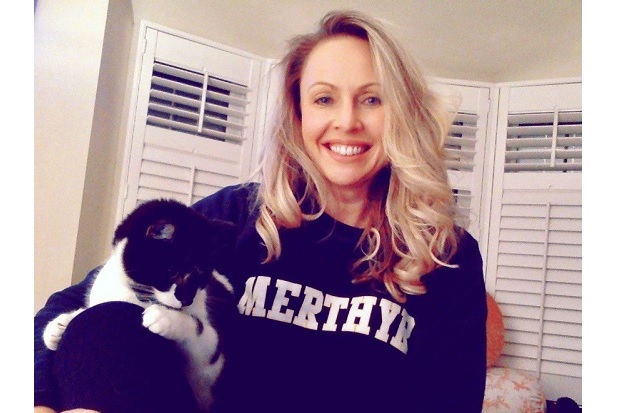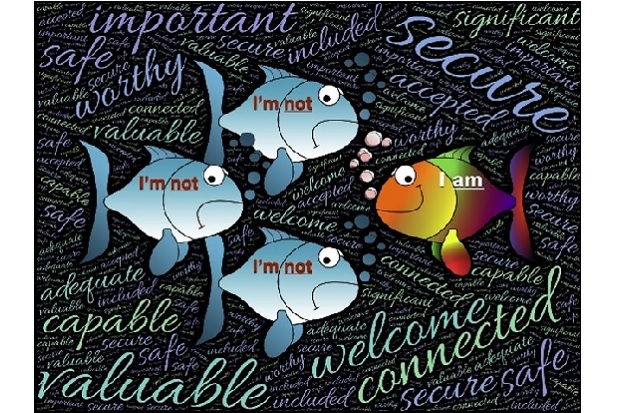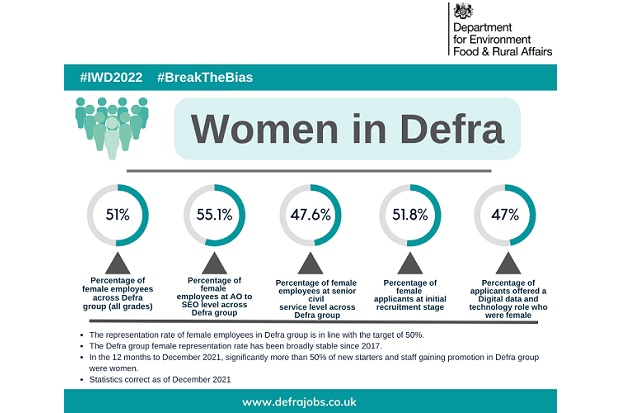
This year’s International Women’s Day theme is ‘Break The Bias’. Let’s be honest here, bias is an everyday part of life. We all experience it and we all do it, to a lesser or greater degree, in almost every aspect of our lives. It is sometimes a reflex response and I guess the goal is to be as aware of those responses as we can be.
It’s in the workplace where it can often impact us most personally, professionally, and most profoundly though. I started my career in fashion retail, a notoriously biased and often ruthless industry, where the bottom line and how you look sometimes seemed to me to override anything else.
For ten years I managed flagship stores in London’s West End. That was real ‘work hard, play hard’ stuff, and something you can only do it for so long because it’s tiring – the long hours, ‘always on’ culture, and continual pressure, all get to you in the end, and I burned out. This caused me to reflect on my values, and what this meant for the career path I was following.
Embracing diversity, promoting equality, breaking the bias
At the age of 30 I decided something needed to change. I had enjoyed my time in fashion and learned loads about running a commercial enterprise, but I wanted a bigger intellectual challenge and a better work/life balance. I was interested in public service, and it felt like a way to give something back and have a more lasting influence. I’d had a brief taste of this before I went to university, when I did a gap year at the DWP as an Admin Assistant.

So, I jumped back in, first with a junior role at the Driver and Vehicle Licensing Agency. Over the past eighteen years I’ve worked in several departments, operating in a range of programme management, HR, policy and transformation roles.
I’ve worked on complex and cross-cutting people transformation programmes, and I’ve developed new services while also using my commercial experience to always look for where we can deliver efficiencies. I’ve collaborated with all manner of senior stakeholders. From being right at the centre in Cabinet Office, to operational delivery in the Rural Payments Agency, I’ve experienced many pivotal moments in government and encountered a very diverse range of people.
As a woman without a conventional Civil Service background, I have been afforded an exciting and memorable career, and never felt my gender was a barrier to the development of my career in the Civil Service. As a Welsh woman in the heart of Whitehall, I have sometimes worried my strong regional accent set me out of place.
But maybe that was a bias of my own – my reflex response – it’s hard to say. What’s great to know is that Defra’s commitment to de-centralisation and social mobility mean I feel more confident than ever that there is a place for me here, and that my contribution is valued.
Recognising a problem is the first step to dealing with it
We work hard to recognise bias in Defra, and to tackle it where it occurs. Diversity and inclusion are at the heart of our people strategies, policy making, strategic planning, service delivery and employment practice. We have objectives in our Defra group EDI strategy 2020 to 2024 that include creating more inclusive cultures, building and sustaining a diverse workforce, and enhancing our capability and confidence to proactively address Equality Diversity and Inclusion (EDI) issues.

Workplaces undoubtedly benefit from embracing diversity, in its broadest sense. People are all different, and I believe it’s important to try not to judge someone based on any particular characteristics, be that their age, gender, race or favourite music, or if they are a cat or dog person (guess which I am 😊…).
In my spare time, I also teach yoga, and my training taught me a lot about recognising where you are making judgments and asking yourself where they came from, and what if the opposite were true; learning how to manage our reflex judgements, of both ourselves and others.
The unknown knowns
In the Civil Service we used to talk a lot about unconscious bias, particularly in reference to recruitment and performance appraisal. Unconscious (or implicit) bias is a term that describes the associations we hold, outside our conscious awareness and control.
Previously, all civil servants had to complete unconscious bias training, which aimed to raise awareness of the potential biases and cognitive shortcuts that may negatively affect decision-making and behaviour in the workplace. Whilst this was beneficial, in late 2020 we move to a broader diversity and inclusion learning approach, making it more inclusive and natural.
Integrating EDI into everything we do is something I feel we need to do more on – I don’t think we have cracked it yet. As we improve, the conversations are likely to get more difficult and we will need to learn to be more sensitive, but the commitment to doing that is there.

Crunching the numbers
In Defra we believe our willingness to acknowledge bias, especially when it comes to bringing in new people, where ‘name blind’ recruitment, diverse panels, and recruiting across the UK is standard practice, demonstrates that strong commitment to ensuring we can be as fair as possible when we’re hiring.
In Defra in general, and in our Digital data and technology part of the organisation specifically, we have a positive story to tell when it comes to gender equality. 51% of Defra’s workforce are women, and 55.1% of people across Defra group at the more junior grades (AO to SEO level) are women. At senior civil service level, 47.6% of Defra’s workforce are women.
Almost half of those offered a role in our Digital data and technology function are women. A misconception amongst some is that the tech sector is a predominantly male-dominated industry. That’s not our experience here in Defra, as the evidence of that last stat shows.
My background is definitely not technology; it’s organisational transformation, programme management and people-related roles, but I have been able to step into a technology career in Defra, leveraging my broader competencies and learning to apply them in a technology environment.
I’m a firm believer in the importance of continuously challenging yourself, and life-long learning is a key factor in me reaching Senior Civil Service level. I continuously push myself. My top piece of advice for someone wanting to become a leader is to spend some time learning about yourself, what are your values, working styles and preferences, and what do you enjoy doing, making work an exciting daily challenge rather than a chore.
Don’t feel like you need to fulfil an expectation, instead focus on what you enjoy, what interests you, and where you can use your strengths to add value. And be prepared to change that thought about yourself through the course of your career as your lifestyle and values evolve.
Find out more about International Women’s Day, which is celebrated around the world each year and aims to help forge a gender equal world by celebrating women's achievements and increasing visibility, while calling out inequality.
The day has occurred for well over a century, with the first IWD gathering in 1911 supported by over a million people in Austria, Denmark, Germany and Switzerland. Prior to this the Socialist Party of America, United Kingdom's Suffragists and Suffragettes, and further groups campaigned for women's equality. Today, IWD belongs to all groups collectively everywhere.
